- Home
- Blake Banner
Kill One_An Action Thriller Novel Page 3
Kill One_An Action Thriller Novel Read online
Page 3
“Was that you in the red Silverado?”
“No. Listen. I want you to find out everything you can about a company called Intelligent Imaging Consultants. Fenninger is a consultant for that company. Can you do that?”
“Sure. No problem. It wasn’t you?”
“No.”
“OK. Catch you later.”
At seven thirty Fenninger came out with three men and a woman. The woman was dark, possibly Hispanic. One of the men looked Japanese, one was white and the other looked Arabic. Fenninger was talking a lot, gesticulating. The others were laughing. They crossed the road, dodging the slow moving traffic, into 8th Street, and pushed their way into the Brazilian steakhouse there. I sighed, went and found myself a burger and a bottle of beer, and settled in for a long wait.
At half past ten they came out, said their farewells on the sidewalk and Fenninger returned to his car. I watched him climb in and followed him all the way back to Malibu, where the white gate rolled open and he pulled into his drive.
Ted Wallace’s sedan was gone, but there was a Ford Fusion in its place. I was tired and my body ached, and I needed to think. I could hear the bottle of Bushmills Kenny had given me calling to me, so I turned around and made my way back to Watts, and the Toro guest house.
I left the truck around the corner and pushed through the Mexican curtain. Don wasn’t there. There was a woman behind the counter. There was a look about her that said she was Mexican. Physically she could have been from anywhere in the Mediterranean or Latin America, but there was something in her eyes that said she was Mexican. The look she gave me said Don had told her I was trouble and to stay clear of me. That suited me fine. I nodded and said, “Buenas noches.”
Her eyes narrowed and her left eyebrow arched. “I speak English. Good night.”
I met her stare but didn’t answer. I went to my room, poured myself a large whiskey and opened the window to have a smoke and think about what I had learned. I decided I’d learned enough to complicate things, but not enough to know why.
Three
Aaron Fenninger was Epsilon, number five in the Omega hierarchy. That made him a man with a lot of power, and it meant that everything he did in his professional life was part of his work as a leading member of Omega. More than that, it meant everything he did in his professional life was an integral part of his work for Omega, and more precisely Omega 1. That meant that if he was consulting on the board of Intelligent Imaging Consultants, the work of that company was, somehow, directly relevant to Omega’s plans.
Outside my window the fountain made little wet noises. I examined the amber spirit in my tooth mug, sucked on my cigarette, inhaled deeply and let the smoke out through my nose. I closed my eyes and in my mind I recited the competences of Omega 1: free market capital, mass production, mass distribution, technological research and development in non-biological fields, social cohesion, conflict and tension. There was no immediate, obvious link with Fenninger. Except…
Hollywood, the world’s most powerful propaganda machine. So Omega had learned from the Third Reich, and Fenninger was their Goebbels. I took a swig and let the smooth burn run down my throat and warm my belly. It made some kind of sense, but when I remembered the sophistication of the research I had come across, both at the sun beetle farm in Colorado, and at the John Richard Erickson Institute[1], it was hard to believe that any of that was being applied in Hollywood. For one thing, the United States had never been less united, had never had a more divided, confused sense of purpose. The kind of chaos and division which was afflicting the US was not the product of anodized, neutralized or standardized minds.
What was it the product of? There were plenty of theories out there, most of them made party political points; few of them, if any, stood up to intellectual scrutiny. Perhaps chaotic disunity was an essential part of human nature, and there was more of it now than ever before because there were more people now than ever before. If that was the case, then Fenniger’s work as Omega’s head of propaganda wasn’t very effective.
I drained my glass and dropped my cigarette butt into it. It gave a small fizzle and died. One thing was clear in my mind. It was about the only thing that was. I had to get inside Aaron Fenninger’s offices and see what he was about—before I killed him. When Fenninger died, his work had to die with him, otherwise there was no point.
I slept badly and at eight the next morning, after a work out and a shower, I called Ted Wallace. He was at his office, his relief was on duty at the house. So I got in the truck and drove downtown to talk to him. As I stepped in, his secretary looked at me like I wasn’t the nicest thing that had happened that morning. She smiled with her mouth but left her eyes on scowl duty and said, “Good morning, Mr. Nine O’Clock.”
I smiled with all my face and said, “I would tell you my name, but then you might steal my soul.”
She raised an eyebrow. “My God,” she said without feeling, “A man in L.A. who has a soul.” She looked back at her computer and jerked her thumb at the door. “He’s expecting you.”
He had a pot of coffee on the desk and a paper bag full of fresh croissants. There were two cups, a carton of milk and a box of sugar. He said something that sounded like “Mng-ng!” gestured with his chin at the cup he wasn’t holding, and added, “H’llash’llf!”
“Thanks.” I sat, poured mine black and grabbed a croissant. “What have you got?”
I bit and chewed while he drank and swallowed. “Not a lot, to be honest. The house is gated and walled, so it’s impossible to see what goes on on the inside, unless you want to start getting into expensive electronic surveillance, and even if you did, I’m not sure how successful you’d be. These guys employ the best and can afford the best.” He sighed, bit, chewed. “One thirty PM he left the house in his Jaguar, but you already know that because you weren’t waiting for him in your Chevy Silverado and you didn’t follow him.
“Three PM his wife came out…” He opened a file and dropped a couple of large photographs on the desk. They showed an attractive woman in her thirties, in jeans and a white blouse. She was holding hands with two children, about eight or ten, a boy and a girl. “She walked two doors down to the Reeds’ residence, stayed there until six PM and returned. Nobody arrived and nobody left until around midnight, when Fenninger returned. The exact time is in the report, but you know that because you were not following him in your not a Chevy Silverado.”
He poured himself more coffee and stuffed half a croissant in his mouth.
I asked, “How about Intelligent Imaging Consultants?”
He looked at me and blinked, then looked at his watch. “What I’ve been able to find out since last night is that it is basically a think tank set up with money from various corporations…”
“Media?”
“All visual media, TV, video, cinema, IT obviously, and their main function seems to be to advise or make recommendations on what shows or movies to produce, promote or axe.”
I frowned. “So I have a movie I want to produce…”
He shook his head. “Mh-mh…” He swallowed and sipped coffee. “No, you are a corporation that produces maybe a hundred and fifty shows, covering everything from news to sci-fi to comedy to drama, et cetera. Now, once a year you need to decide what gets axed, what goes on for a new season, and what new projects get the green light. Correct?”
I nodded. “OK.”
“So sometimes that is a tough call. Often it’s a tough call. In the old days you did it on a mixture of gut feeling and ratings. These days it’s market analysis, what’s trending on Twitter or Facebook—all that shit. So these guys went to the big corporations and said, ‘we have the expertise, we can look at your shows and tell you which ones to axe, which ones to keep and promote, and which projects to green light.’ And they give them this advice based on market analysis.”
“And they have a consultant who is a TV and cinema producer. No conflict of interests there.”
He smiled. “This is Hollywood. T
here are no conflicts of interests, only interests.”
I thought about it for a minute. “That’s a hell of a lot of work and research for four people.”
He sighed. “I have more digging to do. As well as run a detective agency, I also have a life that includes a wife and kids.”
I offered him an ironic face. “I heard that some people do that.”
“Yeah. My guess, they have a team of freelance researchers trawling through social media and reports from market research companies. They distill all that research and show it to their consultant. He ignores it and makes his recommendations on what he wants to see axed, promoted and green-lighted. That has always been the way it has worked in Hollywood.”
It was what I had imagined, and it meant that Omega got to choose what dominated the media. In classic Omega style, they had a conspiracy in which millions colluded without ever realizing it, while one conspirator pulled the strings.
I nodded. “Good work.”
He looked surprised. “It is?”
I smiled. “Sometimes you just need a pro to confirm what you suspect. Stay on the Fenninger residence. If I don’t see you tonight, I’ll drop in tomorrow morning. Tomorrow the croissants are on me.”
In the outer office, on my way out, I smiled at his secretary as I passed. “What’s your name, by the way?”
She didn’t look up from her computer. She just said, “Seriously?”
* * *
There was a surprising stillness and quiet on Sunset Boulevard. It was half past two in the morning. Listless aluminum streetlamps painted the blacktop with a sickly sheen of yellow light. The shops were closed, the offices were closed, the pizza parlors and cafes were closed. All the buildings had darkened windows, like dead, closed eyes, and black doors like gaping mouths. Only the night watchmen were awake, sitting behind their dimly lit desks, watching small TVs in their towers of steel and glass, while outside, empty streets echoed with distant sirens under a black, invisible sky.
I’d had the Emperor sitting in the back of the Silverado with the controls on my lap. Take off had been uneventful and I was now using the onboard cameras to come in for a gentle landing on the roof of the small, six story tower where Fenninger had his offices. The landing was good and I deposited the payload, then brought the drone out of range, back to the truck. When it had settled safely I triggered the powerful EMP generator I had deposited on the roof, then pulled on a woolen hat and a pair of heavy shades, and made my way across the road to the main door. I could see the guard inside messing around with his screens and his computer, trying to work out what had happened. I rapped on the glass and held my home made FBI badge against the glass. I’d had to return the one I’d ‘borrowed’ from Agent Harrison Mclean during the UN fiasco[2], but I’d managed to produce a decent copy before doing so, with the advantage that it had my photograph in it instead of Mclean’s.
The guy in the uniform inside scowled at me, hurried over and looked at the badge. Then he opened the door. I stepped in, waved the badge at him again and said, “Special Agent Mclean, your IT out?”
He nodded. “Yeah.”
“Cameras?”
“Uh-uh, everything, all out. What’s going on?”
“You got anyone patrolling the building?”
“No.”
I scowled at him like it was his fault. “Why not?”
“We ain’t got valuables here. It’s only six floors and we just got documents, film scripts, that kind of stuff. I take a walk every couple of hours. If we have trouble we call the cops.”
I grunted. “OK, stand by. Do nothing. Call no one. We have this covered. I’m going to have a look upstairs.” I held out my hand. “Keys.”
He hesitated. If he refused I was going to have to knock him unconscious. But it wasn’t necessary. I was the FBI, and everybody trusts the Feds. He handed me a bunch of keys and said, “They’re numbered. It’s an office per floor.”
I walked toward the elevators pressing my finger against my ear, and muttered, “Alpha one, be advised I am proceeding to investigate upper floors. Be alert. We may have hostiles.”
I rode the car to the top floor and stepped out into a small but luxurious reception area, with a mahogany reception desk, parquet floors and leather armchairs set in nests around heavy, dark wood coffee tables. There was a door on the far right, and another behind the desk and slightly to the left. I went for the one on the far right, and my hunch proved to be correct. Once I’d identified the key and opened the door, I found myself in a large, airy office overlooking the boulevard. The walls were paneled in wood and hung with what seemed to be genuine Picassos. The floor here was also parquet, and strewn with Persian rugs. A sideboard on the right held the obligatory silver tray of decanters and a genuine 1960s soda bottle. On the left there was a nest of black leather chairs and couches. A huge oak desk that appeared to be antique sat with its back to the curved windows.
This was where Aaron Fenninger created his shows and his movies. Or was it where he played Goebbels and decided what propaganda to package as Hollywood entertainment, and feed to the Western world? I stood a moment taking in the room. It reeked of power, and yet somehow it wasn’t convincing. There was something that didn’t gel: something that didn’t quite ring true.
I sat at his desk, pulled on some surgical gloves and went through his drawers. All of them were unlocked. There were a dozen film scripts and a stack of contracts, none of which was of any interest. There were ink cartridges, paperclips, elastic bands, pens, paper and blank notebooks.
I got up and walked around the room, looking behind the paintings. I found the safe behind a geometrically challenged woman with both breasts on the same side of her chest. I grimaced. It was a decent safe, but it wasn’t a super-safe. I took my driver’s license from my wallet and slipped it into the fine crack on the right side of the safe door, then began to slide it down slowly till I found the reset button. A little pressure depressed it and I punched in the new code, 123456. I pulled out my license, punched in the code again and opened the safe.
It really is that easy.
There was not much to see other than a stack of papers about two inches deep. I took them to the desk and sat to look through them. The title sheet said simply, ‘INTELLIGENT IMAGING CONSULTANTS’ and underneath, ‘Five Year Project’.
I was aware I didn’t have long before my guy downstairs started getting antsy, so I photographed the first ten pages and put the rest back in the safe. Then I placed a micro-bug in one of the carved curls on the side of his desk and another under his coffee table, and made my way down in the elevator again, removing my gloves. As I stepped through the sliding doors I was pressing my ear again and muttering, “All clear, Alpha, stand by.”
The security guard was staring at me fixedly. I frowned at him and said, “I think we must have scared them off. You better call your tech guys to check out your equipment and your cameras.” I drew a deep breath and studied his face a moment, like I was thinking. “My advice.” I shook my head. “I wouldn’t talk about this. Nobody got hurt. Let’s be thankful.”
He nodded, uncertain and a little scared. I stepped into the street and made my way back across the road.
I climbed in the Chevy, slammed the door and sent the drone to collect my hardware. Once I had it in the truck and safely under a tarp, I started a leisurely drive back toward Watts, going over what I had seen. There was no indication, apart from the contents of the safe, that Fenninger’s office was used for anything other than writing and producing his shows and his movies. Apart from being eighteen karat politically correct drone fodder, I didn’t think there was anything especially sinister about his movies or his TV shows.
So that meant that the part of his work that was directly related to Omega was handled, albeit unwittingly, by Intelligent Imaging Consultants. I thought briefly about paying them a visit and nosing around in their offices, but I decided I was more interested in talking to them than looking at their papers. I wanted to know wha
t was inside their heads, more than what was inside their safes.
On the way back to El Toro I pulled into an all night Walgreens and printed the photographs. They were clear and sharp, but I didn’t stop to look at them. I went back to the desolate parking lot, climbed into the truck and drove back through the broad, empty streets to the guest house. There I left the truck around the corner and went inside. The same Mexican woman was standing behind the reception desk. She stared at me as I came in. I said, “Good evening.”
She said, “Are you drunk? We don’t want any trouble.”
I shook my head and smiled. “No, I’m not drunk. And I don’t want any trouble either.”
Her face registered no reaction, but she said, “You been smokin’ in your room.”
“Yeah. Is that a problem?”
“I left you an ashtray on your bedside table. Don’t smoke in the bed. We don’t want a fire.”
“I won’t.” I went to move on but stopped and hesitated. “You always on night duty?”
“Yes. Why?”
“You ever get trouble at night?”
She scanned me quickly with her eyes, then shrugged. “Sometimes.”
“Your husband on hand if you need help?”
“He’s not my husband. No, I call the cops. Sometimes they come, sometimes they don’t.”
I nodded. “Well, I won’t give you any trouble. If you need a hand, shout.”
She didn’t say anything and I went to my room to look at the pictures. I poured myself a stiff whiskey, threw myself on the bed, poked a Camel in my mouth and lit up. Obedience was never my strong suit. I read slowly through the ten pages of documents.
Intelligent Imaging Consultants was composed of three men and a woman: Ahmed Musa, Erick Dunbar, Elena Sanchez and Izamu Suzuki. The document I had photographed—partially photographed—was a proposal that might or might not have been written by Fenninger, suggesting how and why Intelligent Imaging Consultants could and should shift from passive analysis to a more aggressive role in actually driving the direction of what it called ‘popular visually-based culture’.

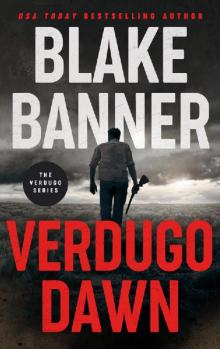 Verdugo Dawn
Verdugo Dawn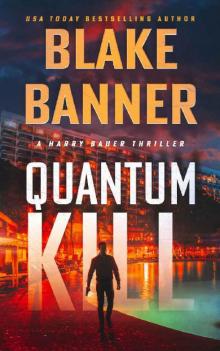 Quantum Kill (Cobra Book 4)
Quantum Kill (Cobra Book 4)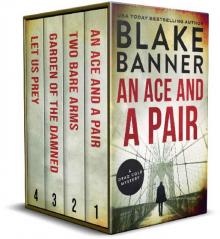 Dead Cold Mysteries Box Set #1: Books 1-4 (A Dead Cold Box Set)
Dead Cold Mysteries Box Set #1: Books 1-4 (A Dead Cold Box Set)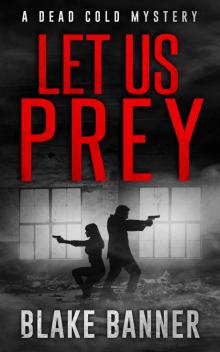 Let Us Prey
Let Us Prey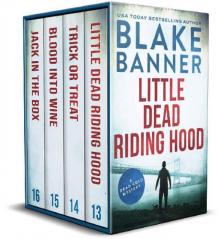 Dead Cold Mysteries Box Set #4: Books 13-16 (A Dead Cold Box Set)
Dead Cold Mysteries Box Set #4: Books 13-16 (A Dead Cold Box Set)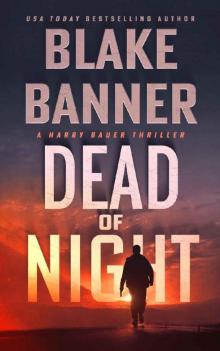 Dead of Night
Dead of Night The Butcher of Whitechapel: Dead Cold Mystery 12
The Butcher of Whitechapel: Dead Cold Mystery 12 Omega Series Box Set 2
Omega Series Box Set 2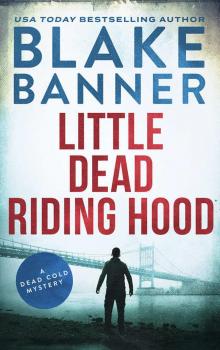 Little Dead Riding Hood: Dead Cold Mystery 13
Little Dead Riding Hood: Dead Cold Mystery 13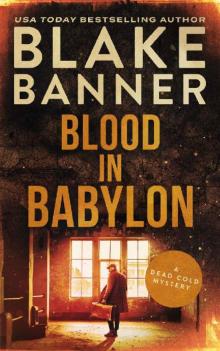 Blood in Babylon
Blood in Babylon Powder Burn
Powder Burn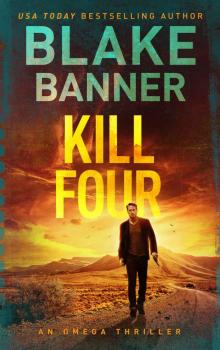 Kill Four
Kill Four Omega Series Box Set 3
Omega Series Box Set 3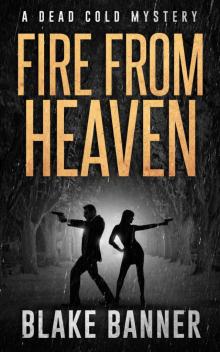 Fire From Heaven: Dead Cold Mystery 9
Fire From Heaven: Dead Cold Mystery 9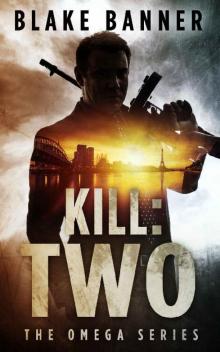 Kill - Two
Kill - Two Omega Series Box Set 1
Omega Series Box Set 1 The Butcher of Whitechapel
The Butcher of Whitechapel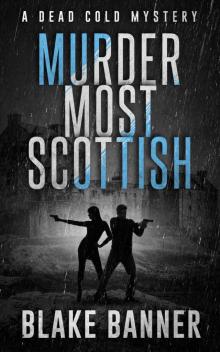 Murder Most Scottish
Murder Most Scottish Dead Cold Mystery Box Set 3
Dead Cold Mystery Box Set 3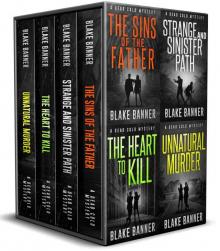 Dead Cold Mysteries Books 5-8
Dead Cold Mysteries Books 5-8 LA
LA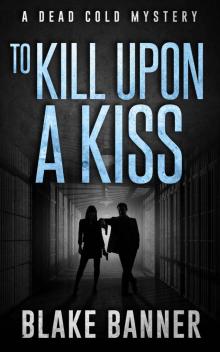 To Kill Upon A Kiss: Dead Cold Mystery 10
To Kill Upon A Kiss: Dead Cold Mystery 10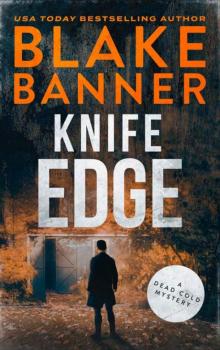 Knife Edge (A Dead Cold Mystery Book 27)
Knife Edge (A Dead Cold Mystery Book 27)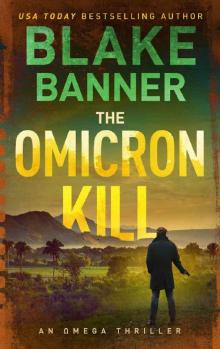 The Omicron Kill - An Omega Thriller (Omega Series Book 11)
The Omicron Kill - An Omega Thriller (Omega Series Book 11)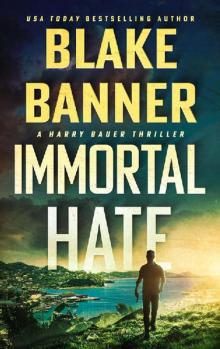 Immortal Hate (Harry Bauer Book 5)
Immortal Hate (Harry Bauer Book 5)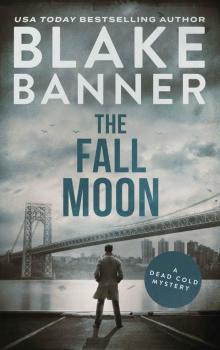 The Fall Moon
The Fall Moon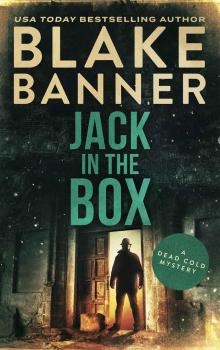 Jack in the Box
Jack in the Box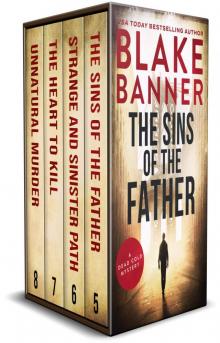 Dead Cold Mystery Box Set 2
Dead Cold Mystery Box Set 2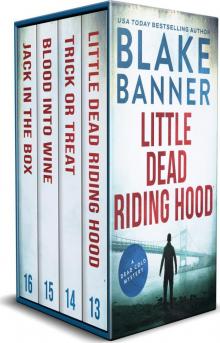 Dead Cold Mystery Box Set 4
Dead Cold Mystery Box Set 4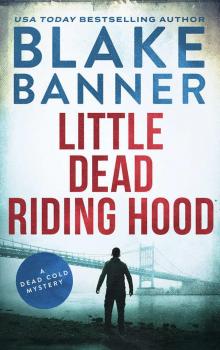 Little Dead Riding Hood
Little Dead Riding Hood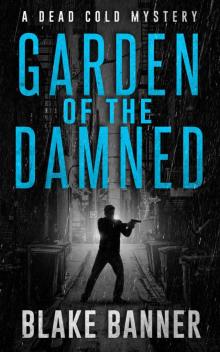 Gardened of the Damned
Gardened of the Damned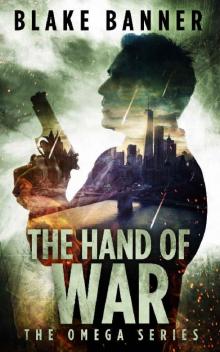 The Hand of War
The Hand of War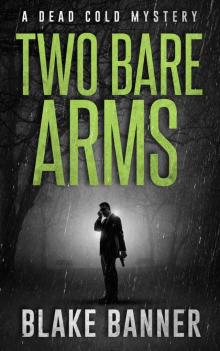 Two Bare Arms
Two Bare Arms Dead Cold Mystery Box Set 1
Dead Cold Mystery Box Set 1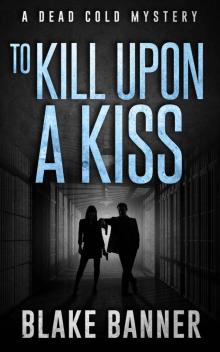 To Kill Upon A Kiss
To Kill Upon A Kiss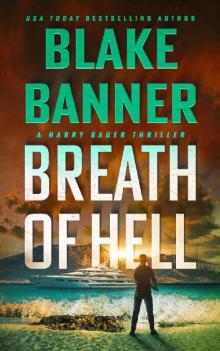 Breath of Hell (Harry Bauer Book 8)
Breath of Hell (Harry Bauer Book 8)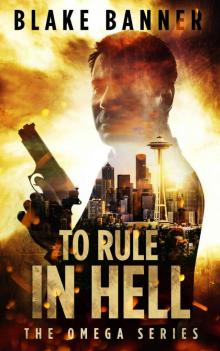 To Rule in Hell
To Rule in Hell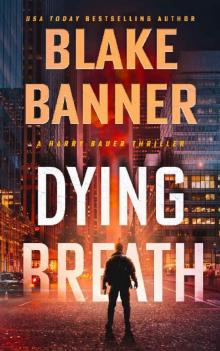 Dying Breath (Cobra Book 2)
Dying Breath (Cobra Book 2)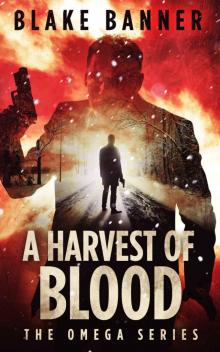 A Harvest of Blood - An Action Thriller Novel (Omega Series Book 5)
A Harvest of Blood - An Action Thriller Novel (Omega Series Book 5)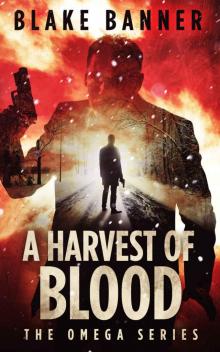 A Harvest of Blood - An Action Thriller Novel
A Harvest of Blood - An Action Thriller Novel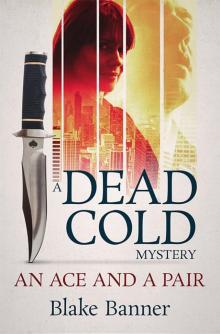 Ace and A Pair: A Dead Cold Mystery (Dead Cold Mysteries Book 1)
Ace and A Pair: A Dead Cold Mystery (Dead Cold Mysteries Book 1) Omega Series Box Set 3: Books 8-10
Omega Series Box Set 3: Books 8-10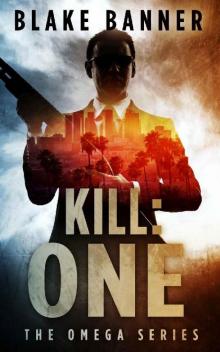 Kill One_An Action Thriller Novel
Kill One_An Action Thriller Novel The Storm
The Storm Double Edged Blade
Double Edged Blade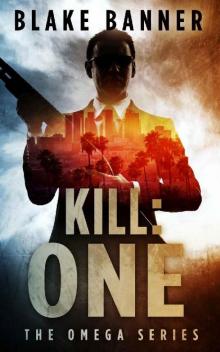 Kill: One - An Action Thriller Novel (Omega Series Book 7)
Kill: One - An Action Thriller Novel (Omega Series Book 7)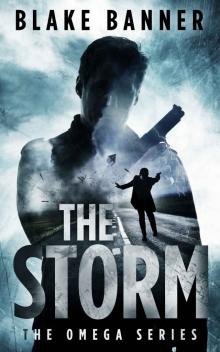 The Storm - An Action Thriller Novel (Omega Series Book 3)
The Storm - An Action Thriller Novel (Omega Series Book 3) Double Edged Blade - An Action Thriller Novel (Omega Series Book 2)
Double Edged Blade - An Action Thriller Novel (Omega Series Book 2) Dawn of the Hunter
Dawn of the Hunter Dawn of the Hunter - An Action Thriller Novel (Omega Series Book 1)
Dawn of the Hunter - An Action Thriller Novel (Omega Series Book 1)